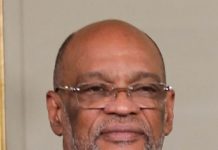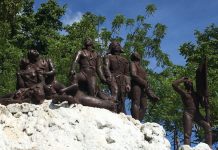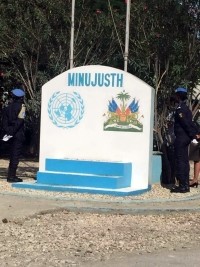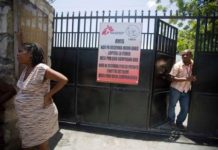Nicolas Victorin has accomplished a lot for his Haitian village of Pignon since he was elected mayor nearly two years ago, thanks in part to connections made while living in Tampa from 2006 to 2010.
Through funding from Tampa’s Debartolo Development, investment adviser Brent Wertz and mission Three Strand Cord, for example, Victorin, 31, has started a community radio station, constructed a school, purchased goats for start-up farms and founded a small business micro-loan program for women.
But Victorin — who earned an associate degree in electronics engineering from Hillsborough Community College — says a village that operates on a monthly budget of $5,000, has no running water and unreliable electricity is not prepared for the return of nearly 1,000 of its 42,000 residents living in the United States under Temporary Protected Status.
Who is Nicolas Victorin? Meet the HCC grad whose Tampa contacts aid him as mayor in Haiti
The Trump administration announced two weeks ago that it is ending the TPS program, which has allowed some 59,000 Haitians to live and work in the United States since a 2010 earthquake devastated their home country.
These Haitians will have to leave the United States by 2019.
Pignon, an agricultural village located in northern Haiti and about 100 miles from the heart of the 2010 earthquake that struck near the capital city of Port-au-Prince, was mostly spared from the destruction but not the economic aftershocks that followed.
The Tampa Bay Times interviewed Victorin over email to get his assessment from Haiti.
What is your reaction to the end of the TPS program for Haitians?
This program provides safe conditions to those Haitians unable to securely return due to ongoing violence, political unrest, the very high unemployment rate and natural environment disasters. There must be political stability in Haiti for the country to start its real recovery and change the situation of the people.
What is one of your tougher challenges in Pignon?
The housing situation. We have some good concrete homes in the center of the city. However, for most of the countryside, people are living in mud homes that have palm tree roofs. During the raining seasons, most of them must leave their homes and go to stay in a secure place where it is not leaking.
How will your village be affected if you lose money sent by countrymen living in the United States under the TPS program?
The economy of Pignon depends on agriculture, raising animals and people living abroad who send dimes to their family. The Pignon beneficiaries of the TPS program left behind children, parents and other close relatives who they care for. Every month, thousands of dollars are sent by that diaspora to relatives back home.
Chalvat Alce is a great example. He graduated from high school and went to technical school and graduated as an electrician, but unfortunately employment is not something that is guaranteed in Haiti. But he later benefited from the TPS program to go to Florida.
He settled himself there, saved some money and now he is responsible for taking care of his widow mother, his sister, the boy he left back home and other members of his relatives. He sends them money regularly, food, clothes and supports them if there is need to go to the doctor, pay for a funeral, etc.
Imagine if he is kicked back to Haiti in 2019?
How do you think your villagers living in the United States will adjust to returning?
Haiti is the poorest country in the Western Hemisphere. Unemployment is as high as 70 percent and the minimum wage is less than $5 per day.
There are not enough structured apartments ones could rent easily in Haiti, electricity is only for a few hours a day where the structures exist and there is no running water in most of the cities.
Imagine the cultural shock that will be for those people who are so used to the lifestyle in the U.S.?
How can people reach you if they want to assist in your village’s ventures?
They can email me at victorinnicolas@hotmail.com.
By: Paul Guzzo/Tampa Bay Times/December 4, 2017





























![Phyllisia Ross – KONSA [Official Music Video]](https://haitiville.com/wp-content/uploads/2014/08/phyliisia.jpg)









